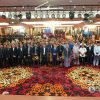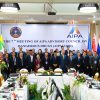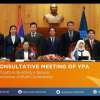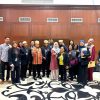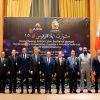17 October 2023 – The 12th International Seminar for Parliamentary Research Services organized by the National Assembly Research Services (NARS) of the Republic of South Korea took place from October 16 to 18 2023. It aims to bring together parliamentary research services from around the world in enhancing parliamentary research services. The main objectives were to share practical experiences and best practices in supporting legislative activities, establish a cooperative network among the delegates, and facilitate discussions on advancing legislative support.
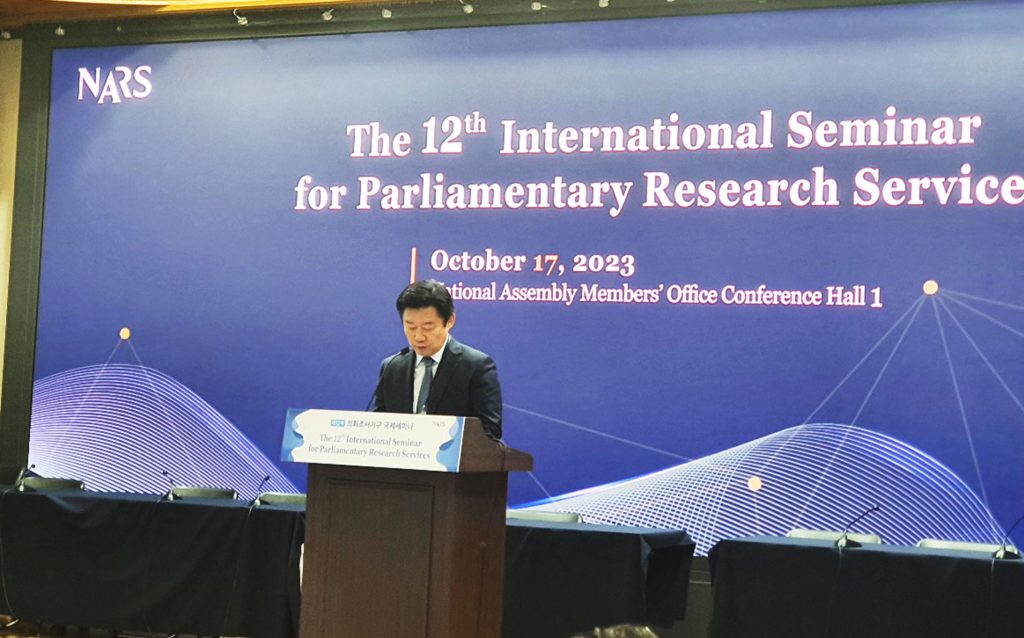
The seminar carries two themes, the first being “The Evolution of AI and Parliamentary Research Services,” and “Legislative Impact Analysis and Parliamentary Research Services.” These themes aimed to explore the role of artificial intelligence (AI) in parliamentary research, as well as the assessment of how proposed legislation and regulations impact a country’s economy, budget, and existing laws.
In total, 37 officials from 23 countries participated in the seminar, which includes the European Union (EU), United Kingdom (UK), Sweden, United States of America (USA), Republic of Czech, Türkiye, Japan, Algeria, Uganda, Mexico, Greece, and Italy. Parliament of Malaysia was represented by Puan Azreen Abdul Hai, the Undersecretary of Research and Library Division, and Siti Mastura Oyop, Research Officer.
The seminar was officiated by Mr. Park-Sang Chul, the Chief of NARS.

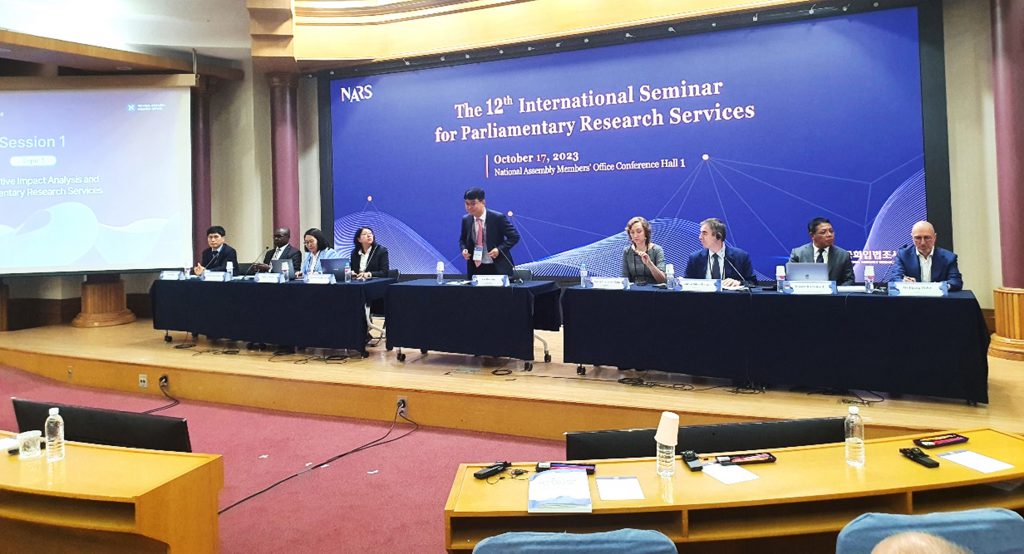
During Session 1, eight countries presented on Legislative Impact Analysis and Parliamentary Research Services.
Legislative Impact Analysis, also known as Regulation Impact Analysis (RIA), involves assessing how proposed legislation and regulations will affect a country’s economy, budget, and existing laws. The objective of RIA is to improve the quality of government interventions by analyzing both the intended and unintended effects of proposed legislation and regulations before decisions are made. Apart from presentation, the session also includes Questions and Answer session from members of the floor.
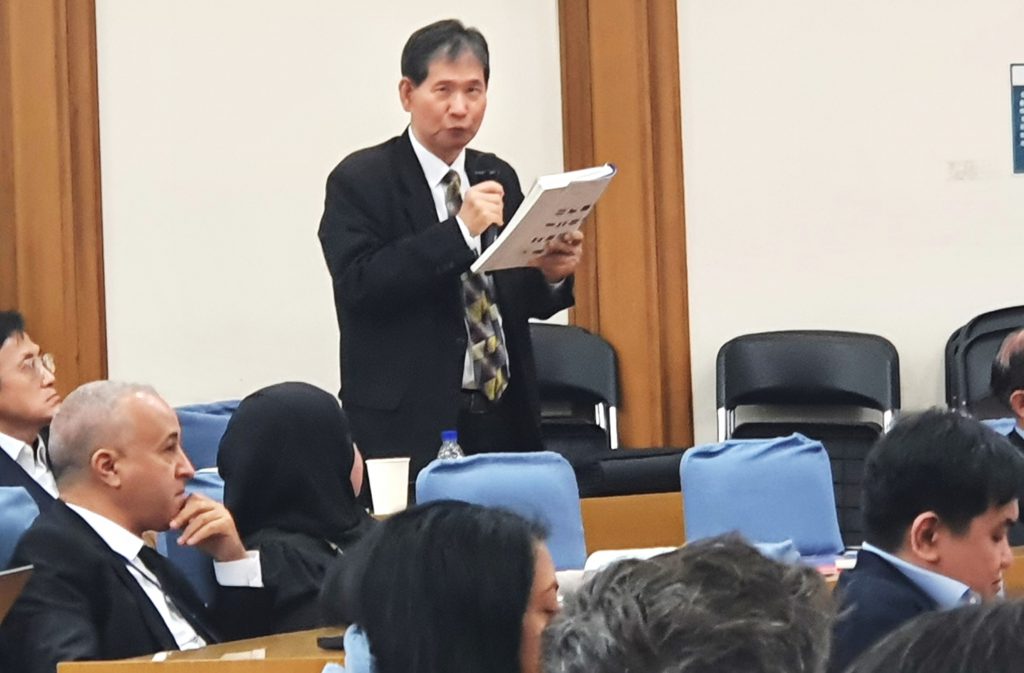
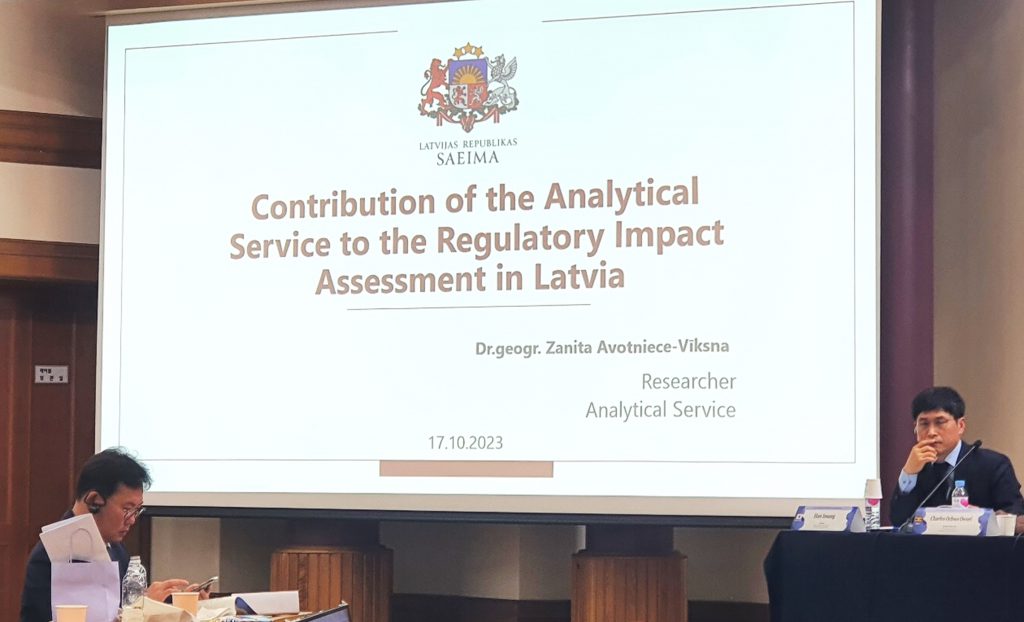
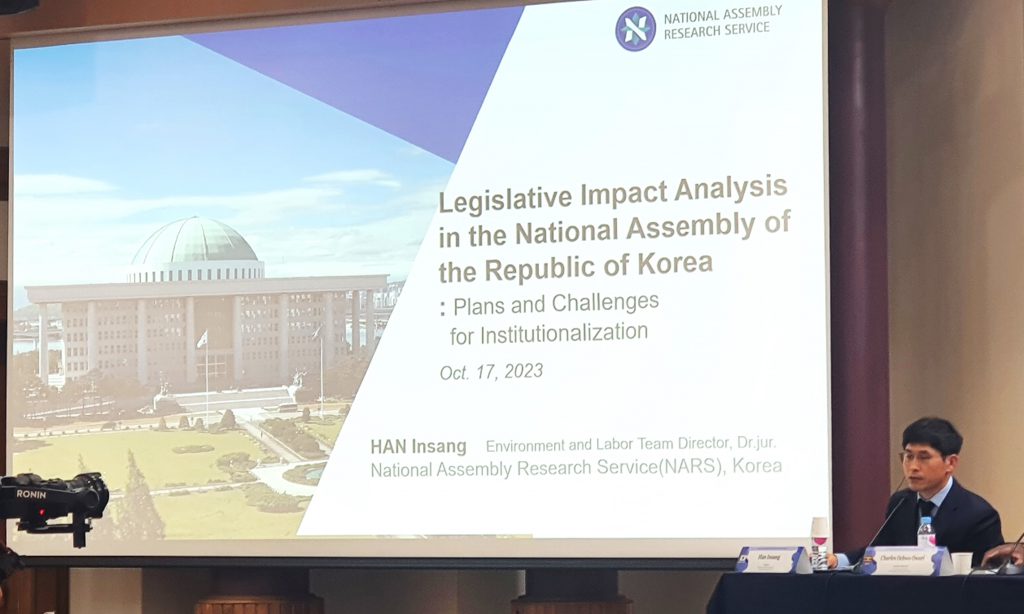
In Session 2, nine countries were divided into two groups to present on The Evolution of AI and Parliamentary Research Services. The first group comprised Austria, the Czech Republic, Germany, and Sweden.
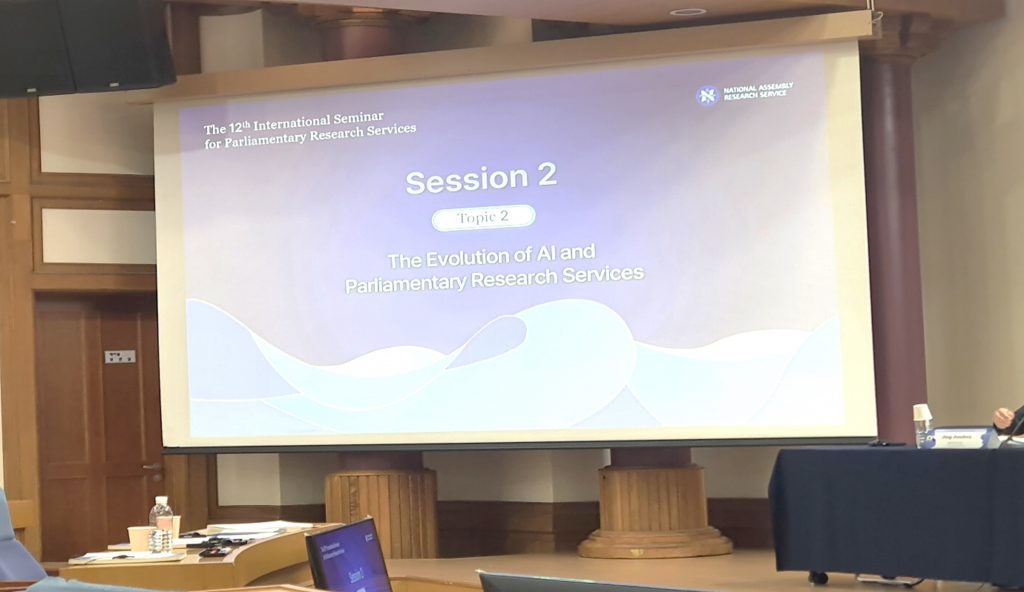
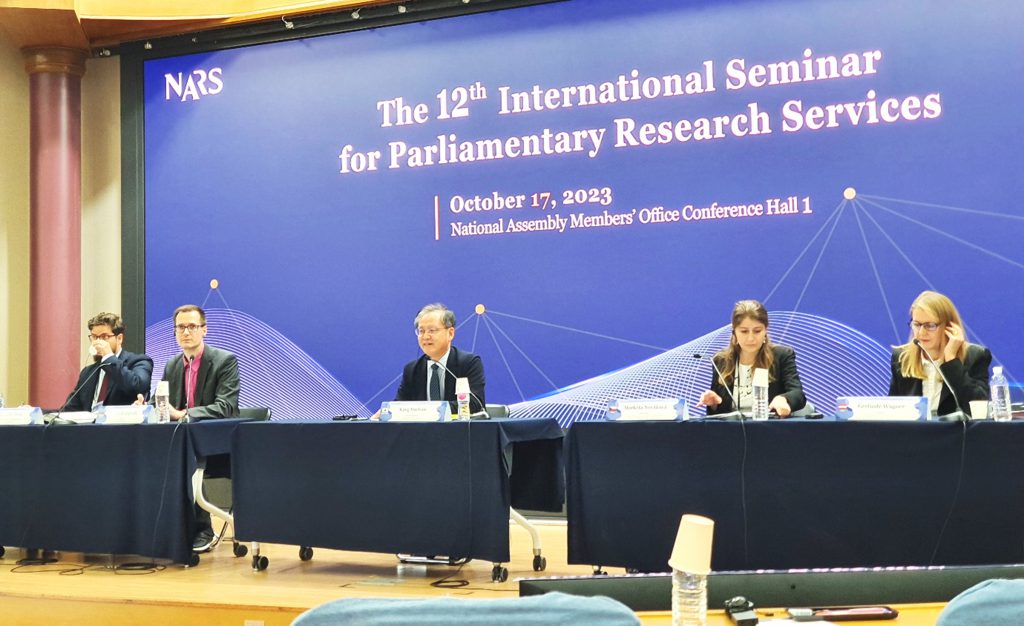
The second group included Malaysia, the Philippines, Turkiye, USA, and Korea.
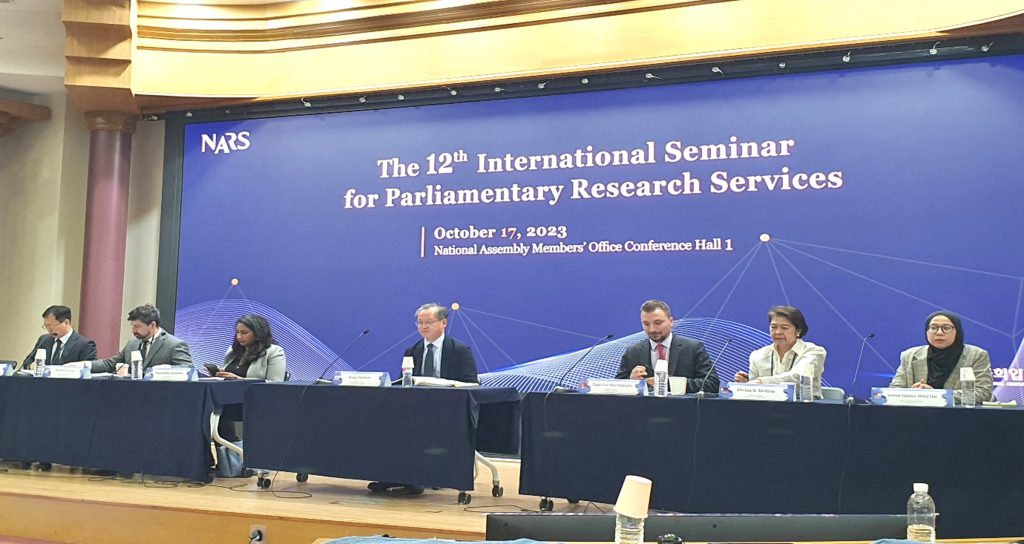
Parliament of Malaysia , provided its insights on the usage, benefits, and impact AI in the Parliament of Malaysia. The presentation covered the emergence of AI, the significance of AI in parliamentary research, case studies on AI applications, and the challenges and prospects of AI in parliament.
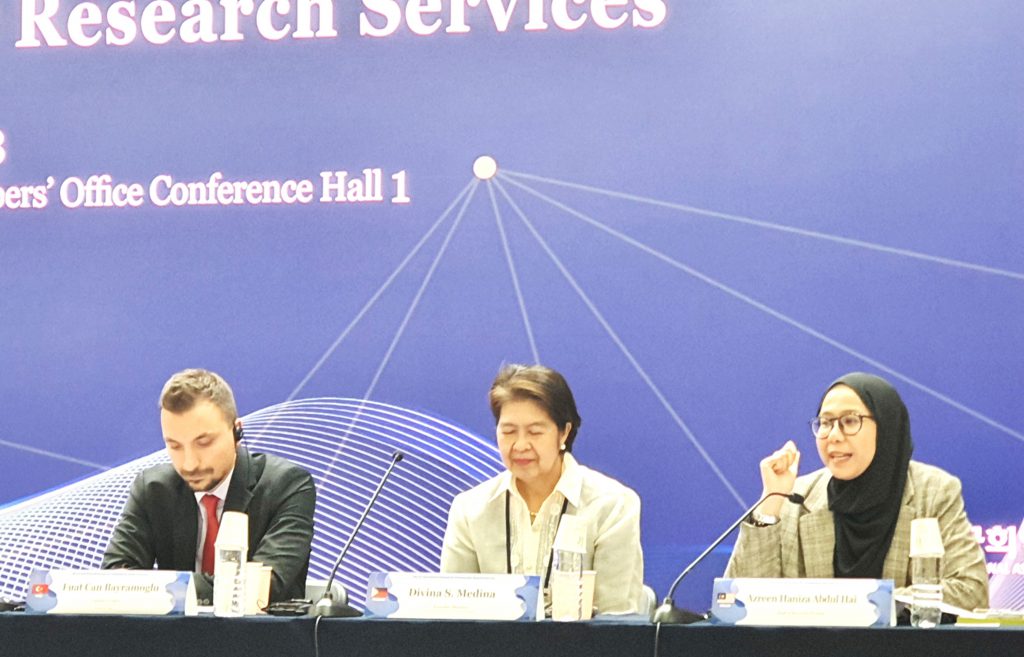
Each country shared their perspectives on the evolution of AI and its impact on parliamentary research services.

The presentations highlighted various aspects related to AI in parliamentary research. They discussed the application of AI technologies, such as machine learning and natural language processing, to analyze large volumes of legislative data, track public sentiment, and support evidence-based policymaking. The speakers emphasized the benefits of AI in terms of efficiency, accuracy, and the ability to uncover insights from complex datasets.
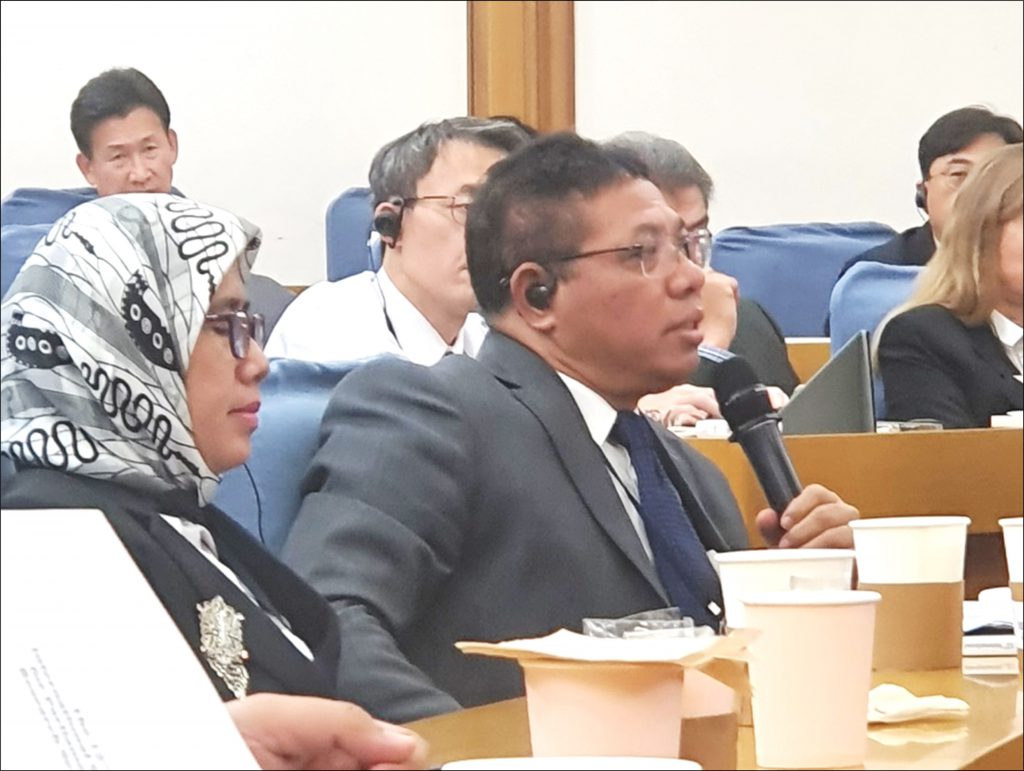
Throughout the seminar, participants engaged in lively discussions and knowledge-sharing sessions. They exchanged experiences, strategies, and best practices in utilizing AI and conducting legislative impact analysis within parliamentary research services. The delegates explored potential collaboration opportunities, fostering a cooperative network among parliamentary research services worldwide.
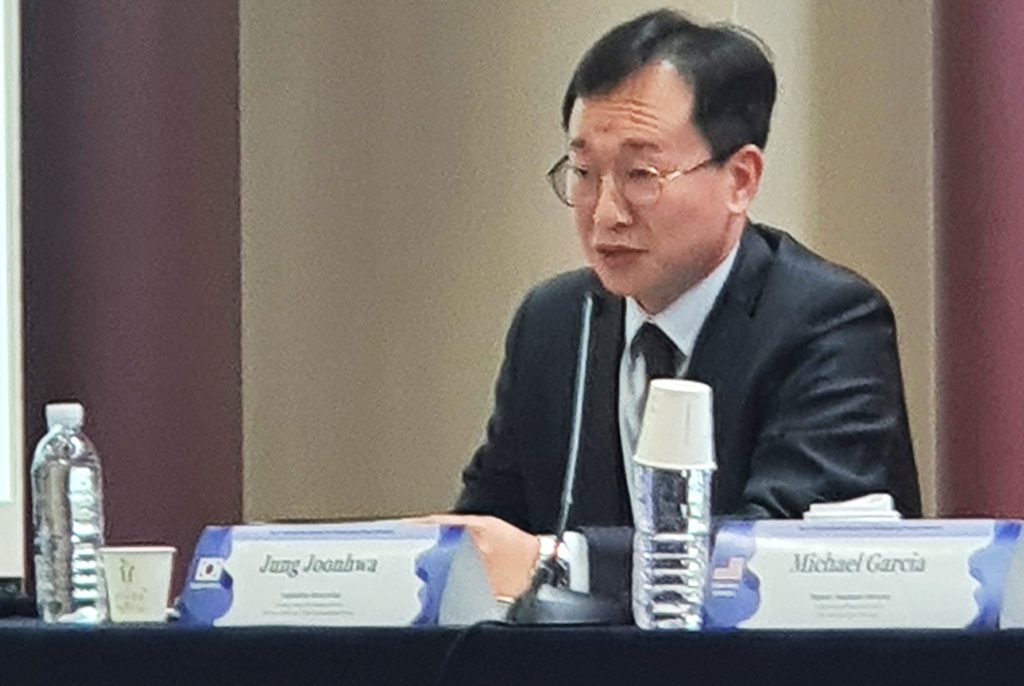
The seminar concluded with closing remarks, summarizing the key insights and takeaways from the presentations and discussions. The participants expressed gratitude for the opportunity to learn from one another and strengthen their understanding of the evolving role of AI in parliamentary research services. They highlighted the significance of continuous learning, adaptation, and collaboration to effectively navigate the challenges and harness the potential of AI in supporting legislative activities.


